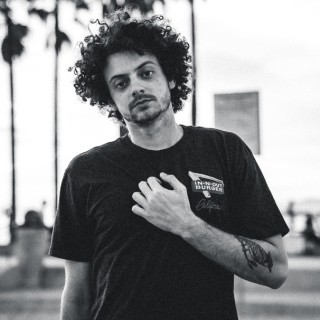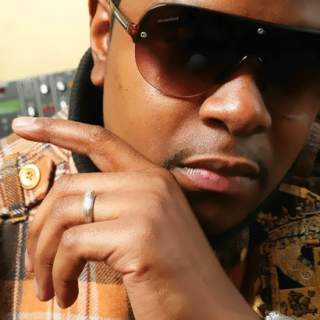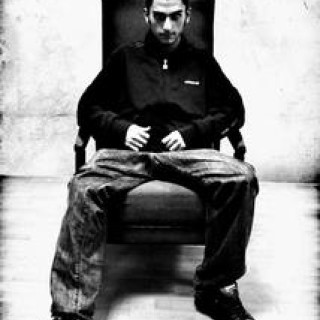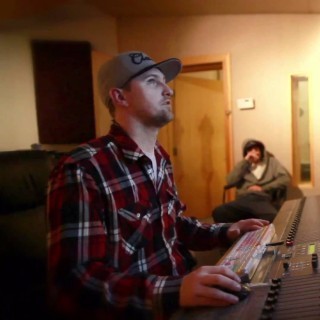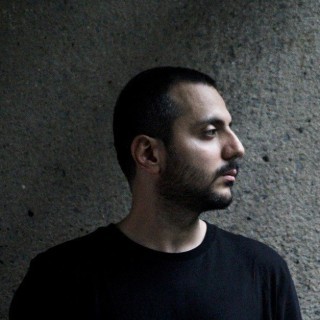
28.02.2014
133
Poetry
Tekst piosenki
Recently, there’s been a fair amount of brouhaha over the way we use the word “like”. 20 years ago, the word had a wide range of meanings (37, according to the OED), but recently, it’s gobbled up an even wider semantic potential. “And then I was like, oh my god!” is a pretty good example of the new territory that’s been forged by the word “like”. There’s also the “Like” button on Facebook (which originally read “Become a Fan”, until some brilliant memes about Facebook users actually turning into the kind of fans you use for ventilation, and the verb was changed to something much less specific), which means the “Like” is seen in all kinds of sense-diluting contexts (“Like us on Facebook!”). It’s a big shift in meaning for the word, and it’s got a lot of people mad.
This week, The Millions has quoted Alexandra D’Arcy, a linguist saying that this new usage of “like” isn’t that bad after all:
There used to be a time when my story might have been: ‘I saw her enter the room and I was terrified that she would recognize me and so I crouched down.’ Which is actually sort of boring. But now you can tell that as: ‘I saw her, and I was like, oh my god! I was like, what if she sees me? I was like, oh my god, I’ve gotta hide. I was like, what am I supposed to say to her?’ And it can go on. I’ve seen it where you have eight quotes in a row of strictly first-person internal monologue where that monologue becomes action. That’s new.
New. Well, of course it is. Language is a fundamentally fluid thing, and the way we speak it changes, imperceptibly, all the time. Old words die, new words are born, and existing words change and grow. I wouldn’t say D’Arcy is wrong, at all, but it’s a bit of a case of stating the obvious. New uses of language offer different possibilities for expression: anyone who’s ever tried to use language creatively knows that, consciously or unconsciously. It’s what drives linguistic expression, as I’ll try to show, from Classical poetry to contemporary rap.
Dante Alighieri, “the supreme poet”, or rather, just, “the poet”, wrote probably the greatest poetic masterpiece the Western world has ever produced, The Divine Comedy. He wrote it in Italian, which was a highly controversial move at the time: all serious works were composed in a dead language, Classical Latin. The vernacular (i.e., the language spoken by the people) was only for non-serious works-- the kind of stuff we might call “popular” today.
As a means of clearing an intellectual space for The Divine Comedy, an epic to be written in “low” Italian, Dante began, and abandoned halfway through, the groundbreaking essay “De Vulgari Eloquentia”. The means “On the eloquence of the vernacular”-- the title’s Latin, as is the essay. We can already see the way the vernacular is perceived in the Latin word for it-- “vulgar”, in English, now means something like “rude”, or “uncouth”, when it initially meant the language of the people.
It’s such an important work because it represents an attack on the system from inside of that system. Dante assumes the role of mediaeval man of letters, writing the essay in Latin as would be expected of any scholar worth reading, but the content was revolutionary, advocating the vernacular (i.e., Italian) for artistic expression. Crucially, he distinguishes between the natural language we learn from hearing people speak it (he calls this the locutio prima) and the artificial one we learn by instruction, from tutors or at school (locutio secundaria).
The natural language is obviously the best choice for creative expression: it allows us to express ourselves naturally. It’s the use of the natural language that makes The Divine Comedy such a thrillingly alive poem. In the first part, Dante is guided through hell by the great Roman poet Virgil (he appears, befitting the master of a dead language, as a specter) and I’ve compared their relationship to the two main characters in a buddy movie in one of my annotations: their chatter constantly flies back of forth, in a stream of “I said to him”s and “He responded”s. The critic Eric Griffiths has stated that Dante is “besotted … with the verb rispondere in all its forms [so] that the poem reads at times like a string of ‘I said to him I said’s”.
Tal mi fec' io quai son color che stanno,
per non intender ciò ch'è lor risposto,
quasi scornati, e risponder non sanno.
Allor Virgilio disse: “Dilli tosto:
‘Non son colui. non son colui che credi!’”
E io rispuosi come a me fu imposto.
(Click for translation and reading)
It’s true: the verb “rispondere” is written through The Divine Comedy like the name of a seaside town on a stick of rock. In this passage, it’s used to mean what we might translate as “answered” (“per non intender ciò ch'è lor risposto” = not understanding what is answered to them), “reply” (“e risponder non sanno” = at a loss for a reply), and “responded” (E io rispuosi come a me fu imposto = and I responded the way I was asked to). In this way, Dante’s use of this neutral-ish (though admittedly beautiful) word starts to bear comparison to the way young people use “like”.
Obviously, it’s not considered cool in academic circles to compare teenage chatter with poetry, but teenagers use “like” exactly the same way Dante uses “rispondere”-- to cover a range of meanings and to give a dialogic backbone to their expression. Dante was besotted with "rispondere", but also what it signifies: dialogue, interaction, living speech. The Divine Comedy is a poem of human interaction, and one that could only ever be written in slang.
Slang does, of course, die out. Shakespeare used all sorts of slang, often in the form of sexual puns, and some of the difficulty in understanding him comes from his heavy use of slang which is now totally extinct. The beginning of Romeo and Juliet, for instance, is loaded with filthy slang that sounds nonsensical to modern ears:
SAMPSON
Gregory, o' my word, we'll not carry coals.
GREGORY
No, for then we should be colliers.
SAMPSON
I mean, and we be in choler, we'll draw.
GREGORY
Ay, while you live, draw your neck out o' the collar.
SAMPSON
I strike quickly, being moved.
GREGORY
But thou art not quickly moved to strike.
SAMPSON
A dog of the house of Montague moves me.
GREGORY
To move is to stir; and to be valiant is to stand:
Therefore, if thou art moved, thou runn'st away.
The “humor” of this passage revolves largely around a play on the word stand, which means to stand firm, but also to get an erection -- nowadays we’d probably say “hard” instead. Shakespeare wrote for a large audience, and it’s fairly certain that most of them would be howling with laughter at this little exchange, but because it uses such ephemeral, bawdy language, it’s lost on us today. Much of Shakesepare is immortal, this isn’t. Old slang can easily become new slang, though: check out Julia Hannafin’s “Cycles of Influence” piece for the way ideas and language circulate around different parts of culture throughout different era.
And so to the Wu. I wanted to write about them because I think their slang is so innovative and distinctive, not just in rap terms, but in general slang terms. It was their network of exotic and varied slang which drove me to Rap Genius in the first place, and they rightfully brag about it, on the reg:
Raw I'mma give it to ya, with no trivia
Raw like cocaine straight from Bolivia
My hip-hop will rock and shock the nation
Like the Emancipation Proclamation
Weak MC's approach with slang that's dead
You might as well run into the wall and bang your head
I'm pushing force, my force you're doubting
I'm making devils cower to the Caucus Mountains
Weak MCs have dead slang. Strong ones speak in a language that's alive and breathing, just as Dante was determined to when he wrote The Divine Comedy. This was the same concept the would-be philosopher and very infrequent poet, T. E. Hulme (who was a massive influence on Pound and Eliot) would try to pick up on in his theories of language. He believed the job of the poet was to mint new phrases, new language, which would then filter down, dying slowly in journalism and the rest of the non-creative population.
I won't go through many individual pieces of slang-- there are websites, and, indeed a published book to delve into for readers eager to expand their vocabulary in this direction. Just a couple of examples: Rae calling his room a lab was absolutely massive to me: in a stroke it transfers four walls where you sleep and eat into a zone of creative experimentation. "Where are you going?" "To my LAB!". Say you're in a situation where it wouldn't be appropriate to say "What the hell?", or something a bit more blue. Not a problem for Meth, he can just exclaim "What the blood clot?!". To call it endless invention wouldn't be that much of an exaggeration.
And is there anything better than expressing your most passionate thoughts and feelings, not in the man's language, but in a language you’ve created yourself? That’s the power of slang; the power of “rispondre”, and the power of “like”. New ways of speaking will always find themselves attacked by those who have a vested interest in the old ones. So keep your slang fresh, lest a prescriptive linguist thinks that what you’re saying is cool.
Tłumaczenie
Brak
Polecani artyści
Najnowsze teksty piosenek
Sprawdź teksty piosenek i albumy dodane w ciągu ostatnich 7 dni
